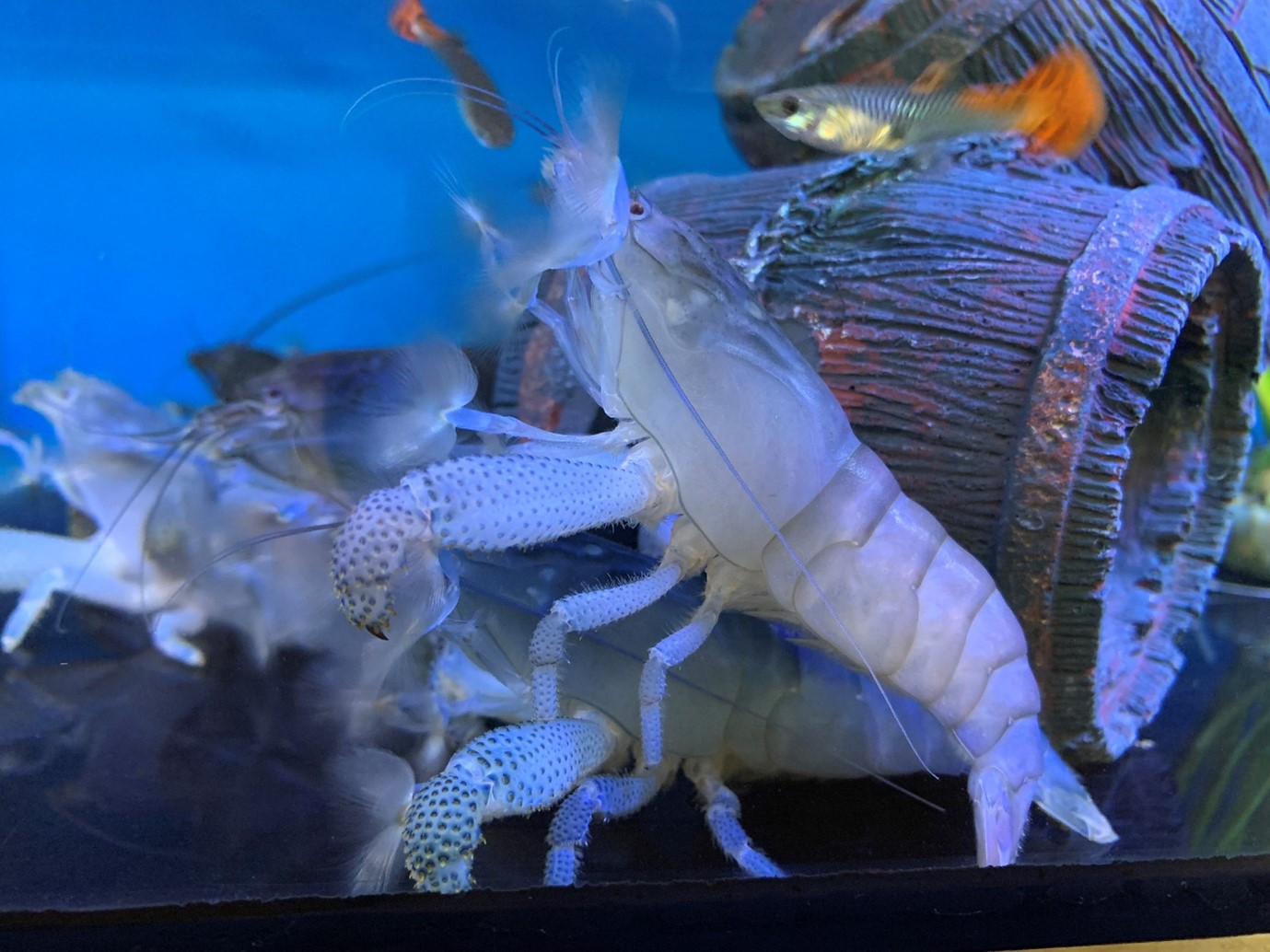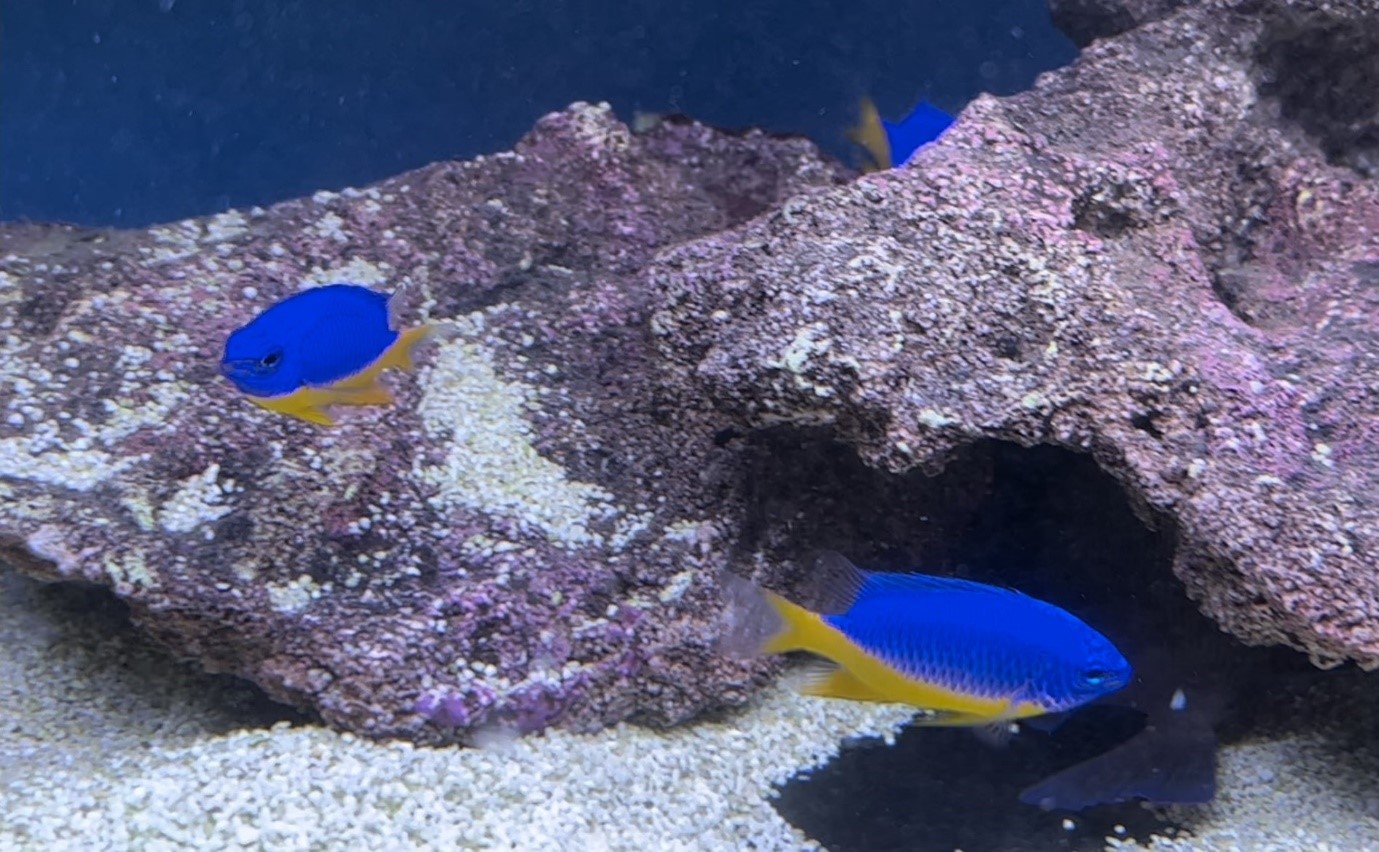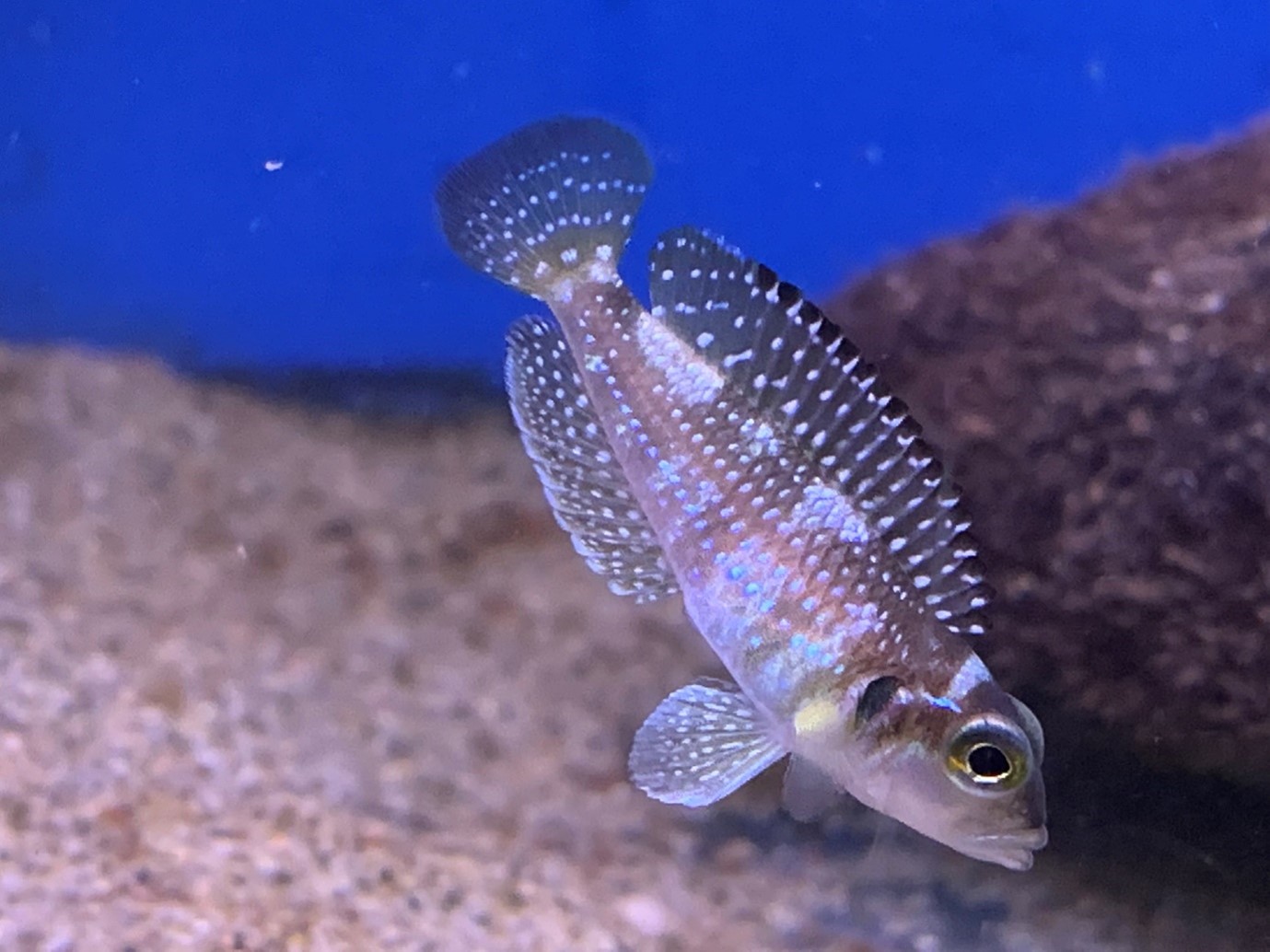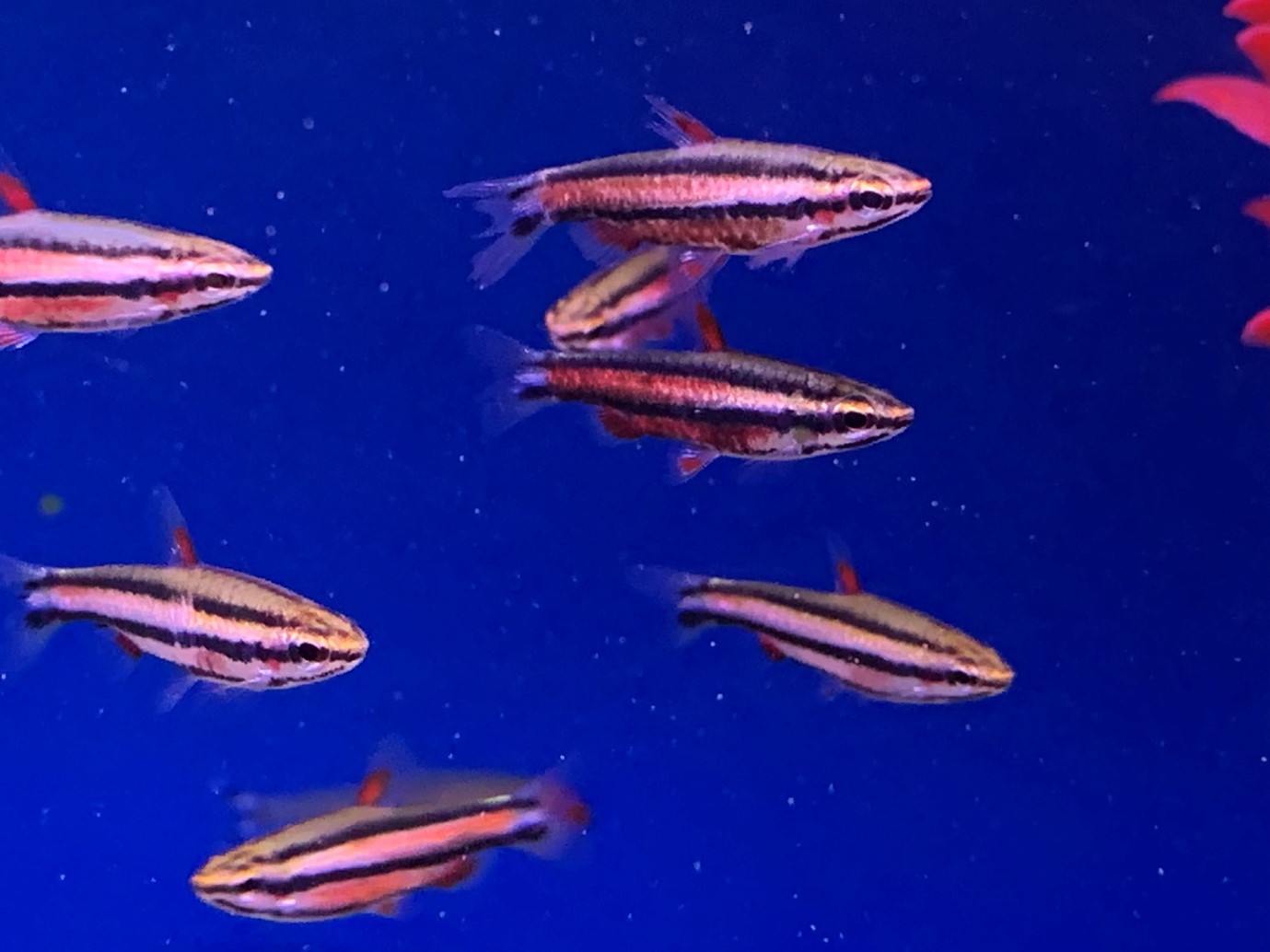What's in Store - December 2023

One of the largest and most impressive freshwater invertebrates that can be safely added to an aquarium alongside peaceful fishes, the Giant fan shrimp (Atya gabonensis) is a filter feeder that needs very fine particle foods. Shy by nature, they tend to find a secure spot where a strong current brings food and oxygen to them. This group was seen at our Derby store.
https://www.fishkeeper.co.uk/fish/freshwater/miscellaneous/giant-fan-shrimp

The chilly weather has meant many stores have brought goldfish varieties (Carassius auratus) in from the pond systems to escape the cold. As anyone who’s worked in an aquatic store will tell you, most goldfish discussions we have with customers are about how large and messy these long-lived fish are and how unsuitable they are for small aquaria (and bowls too!) despite being widely kept this way in the past. Unlike their fancy relatives, pond-hardy breeds have the advantage of being suitable for outdoor care when they get too large for aquaria but they’re still not a fish to be undertaken without consideration for their eventual adult size. This group was at our Woodcote Green store.
https://www.fishkeeper.co.uk/fish/freshwater/pond-fish/goldfish-

The marine hobby is full of contrasts, on one hand, the most popular species of all time is a damselfish in disguise – those orange and white bands might make it a clownfish, but it’s still a damsel and universally loved. Meanwhile, other damselfishes suffer a terrible PR problem thanks to the truly sociopathic members of the family which is best avoided. If we’re completely honest, there aren’t many reef fish that aren’t territorial or aggressive and if they were more expensive, I’m sure people would cut them a lot more slack. These Regal damsels (Chrysiptera hemicyanea) are a beautiful, adaptable, and inexpensive species that naturally occupy a small home range and can be manipulated to reduce aggression. One of the key aspects is introducing a group with a clearly dominant larger individual which will become male and prevent serious fighting amongst the rest of the group. These were seen at our Cwmbran store.
https://www.fishkeeper.co.uk/fish/marine/damselfish/regal-damselfish-azure-damselfish-

If you’re looking for a small, feisty cichlid with loads of character that’s happiest in hard water then it might be that the shell-dwellers of Lake Tanganyika are the perfect fishes for you. Ideally suited to modestly sized aquaria and happiest in a tank with a bed of sand and a few empty snail shells, species such as this Meleagris cichlid (Lamprologus stappersi) are far more aggressive than most big cichlids but fortunately have a bite that can be laughed off. Coming from a habitat with a lower density of shells, these are fish that appreciate their personal space and can be kept in either pairs or harems providing there’s room for each female to have her own breeding territory. This beauty was seen at our Melksham branch.
https://www.fishkeeper.co.uk/fish/freshwater/cichlids/meleagris-shelldweller

Although many people start with a familiar community aquarium and move on to more specialist areas of the hobby, it’s possible to keep tetras for decades and still not tire of them. Recently, pencilfishes have been providing enthusiasts with increasingly choice discoveries and many of these show varying amounts of red. The Purple pencilfish (Nannostomus rubrocaudatus) has been in the hobby for a little over a decade and is a great choice for peaceful soft water aquaria, where it lives happily in small shoals that show less aggression than species such as the Coral red pencil (N. mortenthaleri). This batch had recently arrived at our Shrewsbury store.
https://www.fishkeeper.co.uk/fish/freshwater/characins/purple-pencilfish


